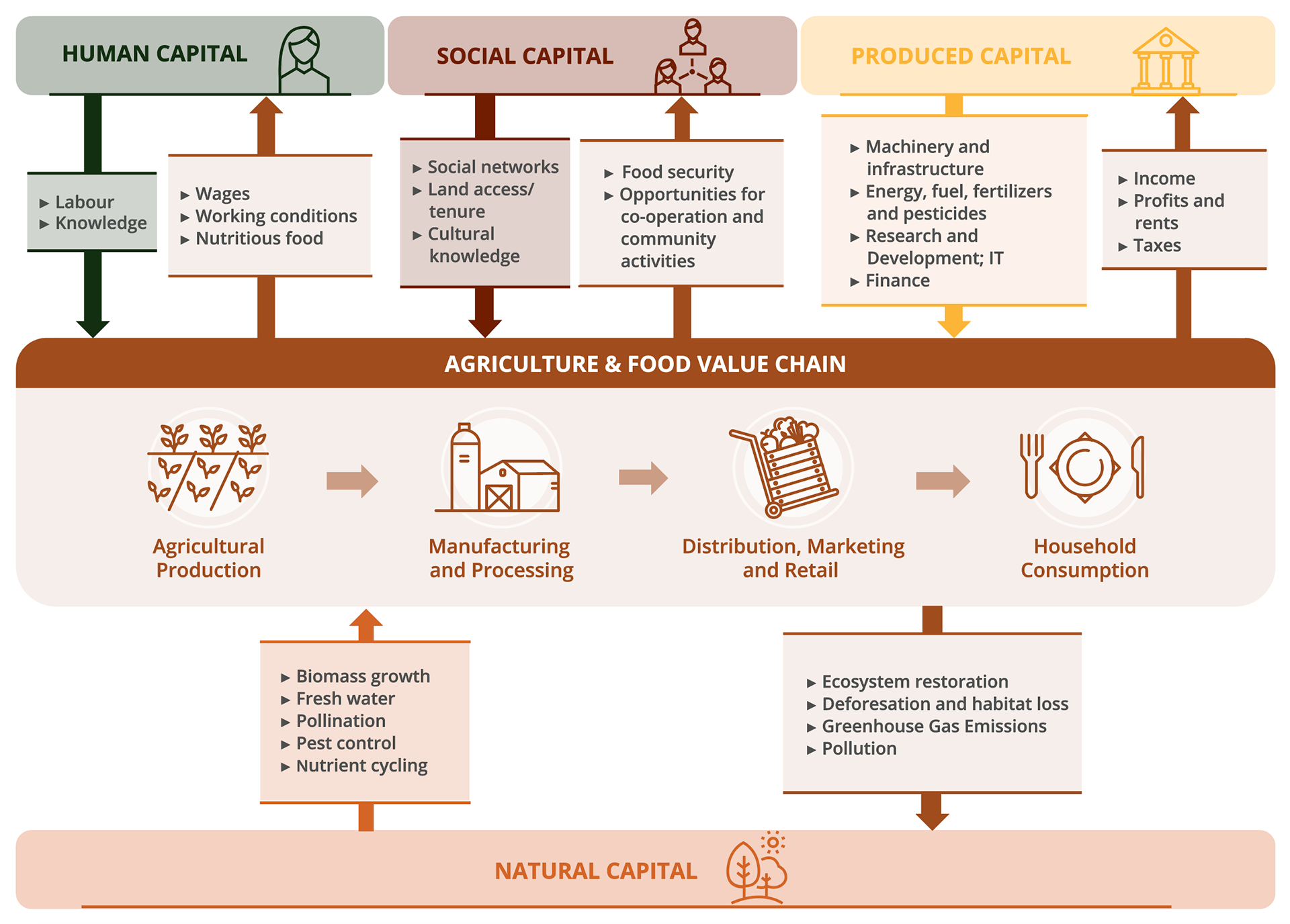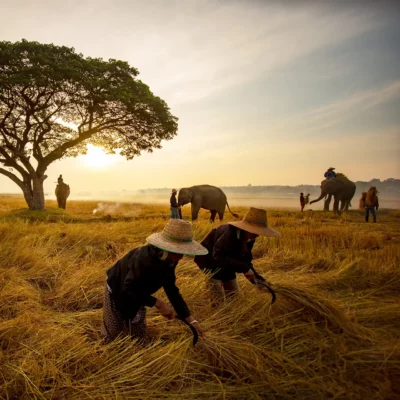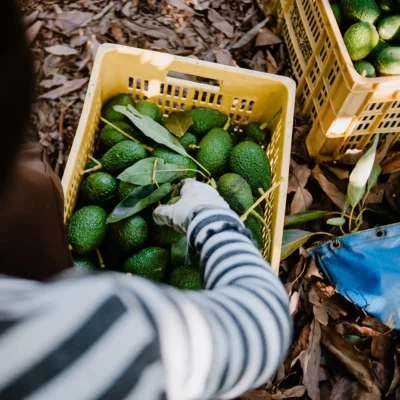TRUE COST ACCOUNTING
Revealing Externalities
Valuing the impacts and dependencies that food systems have on the economy, environment, and society.
Food that supports the health of both people and the planet should be affordable and readily available. However, the impacts of industrial food systems often come with costs that are not paid for at the source.
Instead these costs are paid for by individuals, governments, and the environment through diet-related diseases, polluted land and water, poverty and exploitation, supply chain risks, and more. Meanwhile, approaches that create benefits for society are undervalued and overlooked.
By making more informed decisions about food production and consumption, we have the power to positively transform the environment, health, and prosperity of communities and nations.
But how do we make more informed decisions?
By expanding our thinking beyond narrow measures of food system success, like crop yield, to consider the system’s true costs and benefits. True Cost Accounting does just that.
True Cost Accounting (TCA) is an evolving holistic and systemic approach to measure and value the positive and negative environmental, social, health and economic costs and benefits to facilitate business, consumer, investor and/or policy decisions.
TRUE COST ACCOUNTING: AN ECONOMIC MODEL FOR FOOD SYSTEMS TRANSFORMATION
The four capitals model for evaluating food system impacts and dependencies was established in 2018 by the United Nations Environment Programme’s Economics of Ecosystems and Biodiversity for Agriculture and Food initiative (TEEBAgriFood). 150 contributors from 30 countries contributed to the TEEBAgriFood Evaluation Framework, setting the foundation for most True Cost Accounting assessments in use today.
NATURAL CAPITAL
The limited stocks of physical and biological resources found on Earth, and the limited capacity of ecosystems to provide benefits to humans and other living creatures.
HUMAN CAPITAL
The knowledge, skills, competencies, and attributes embodied in individuals that facilitate the creation of personal, social, and economic well-being.
SOCIAL CAPITAL
Networks, including institutions, that share norms, values, and understandings that facilitate cooperation within or among groups.
PRODUCED CAPITAL
All manufactured capital, such as buildings, factories, machinery, and physical infrastructure, as well as all financial capital and intellectual capital.
Common visible and invisible links in eco-agri-food value chains

Advancing TCA Into Common Practice
Business and government leaders around the world are employing True Cost Accounting as a tool to provide more accurate assessments of social, economic and environmental conditions. These assessments can inform policy and business decisions that make healthy, sustainably grown food the norm for all.

